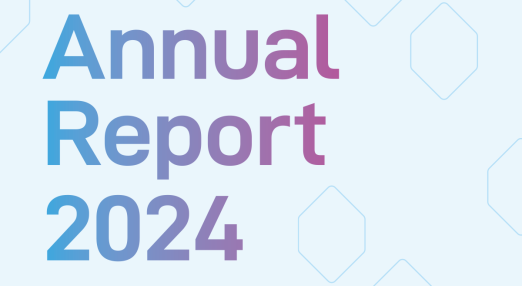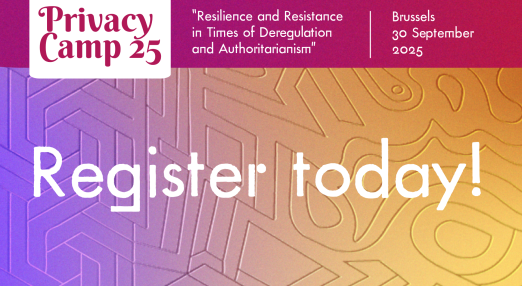Open internet and inclusive technology
New digital technology and the internet brought with it a promise of equal access to knowledge, openness and connection. Their ubiquity has brought opportunity for progress. However, access to digital technology is vastly unevenly distributed. Technology, especially when relying on artificial intelligence, location and biometric data, can amplify social, racial and environmental injustices. We work to bring back the original purpose of an open internet and enable inclusive, sustainable technologies that work for all and for the greater good.
Filter resources
-

Artificial intelligence is not as artificial as you might think
AI systems involve a huge amount of human effort at the hands of millions of workers, often in Global South countries, working in precarious conditions. In this blog, EDRi member SUPERRR Lab dive into the lives of data workers, how they are exploited and undermined by tech companies, and how these workers are now collectively advocating for their rights.
Read more
-

Why age verification misses the mark and puts everyone at risk
Age verification is a short-sighted, ineffective and dangerous way to protect young people form online harms. It is disproportionate when better alternatives are available, straightforward and rewarding to circumvent, and structurally impacts more people than it aims to protect.
Read more
-

EDRi-gram, 13 November 2025
What has the EDRi network been up to over the past few weeks? Find out the latest digital rights news in our bi-weekly newsletter. In this edition: Halloween is over… but digital rights horrors remain
Read more
-

EDRi-gram, 29 October 2025
What has the EDRi network been up to over the past few weeks? Find out the latest digital rights news in our bi-weekly newsletter. In this edition: we're pondering digital fairness, budget cuts for the Austrian DPA and more.
Read more
-

A fair digital future at risk: EDRi’s contribution to the Digital Fairness Act
The European Commission closed its Call for Evidence for the upcoming Digital Fairness Act (DFA) on 24 October 2025. EDRi urged the Commission to tackle deeply harmful forms of manipulation: addictive design, deceptive design, and unfair personalisation, which undermine people’s fundamental rights to privacy, data protection, autonomy and equality. EDRi calls for strong, binding rules that embed fairness-by-design, ban exploitative features, and reinforce Europe’s digital rulebook against growing deregulatory pressure.
Read more
-

EDRi-gram, 16 October 2025
What has the EDRi network been up to over the summer? Find out the latest digital rights news in our bi-weekly newsletter. In this edition: Digital protection at stakes – and how we are fighting back.
Read more
-

Judge in the Bits of Freedom vs. Meta lawsuit: Meta must respect users’ choice
On 2 October 2025, the Dutch court made clear that users should be in control of content they see on Meta’s apps. In a landmark victory for digital rights, the judge sided with Bits of Freedom against Meta, ruling that the company is violating the law and it has to adjust its app to respect users’ choices.
Read more
-

EDRi-gram, 17 September 2025
What has the EDRi network been up to over the summer? Find out the latest digital rights news in our bi-weekly newsletter. In this edition: age verification gains traction, EU’s deregulation spree risks entire digital rulebook, & more!
Read more
-

Age verification gains traction: the EU risks failing to address the root causes of online harm
Narratives around age verification and restriction of access for minors are gaining traction in the EU, amid similar efforts being pursued in the UK, US and Australia. This blog analyses different EU policy files and warns that relying on age-gating risks undermining more holistic, rights-respecting and effective solutions to online harm.
Read more
-

EDRi Annual Report 2024: Reinforcing digital rights and justice in uncertain times
Read about EDRi’s work in 2024 to build an inclusive and equitable digital world. Last year, we witnessed massive changes in the political realm after the European elections in June, and resisted growing attacks on important digital rights legislation while staying rooted in our long-term vision for digital futures.
Read more
-

Civil society files joint DSA complaint against X for targeting people with ads using their sensitive personal data
Nine civil society organisations, including EDRi, submitted a complaint against X for violating the Digital Services Act (DSA) by using people’s sensitive personal data for targeted ads. Together, we are calling for Digital Services Coordinators and the European Commission to promptly investigate X, and hold it to accountable for undermining users’ fundamental rights.
Read more
-

#PrivacyCamp25: Registrations open and call for sessions deadline!
In 2025, we are excited to host you online and at La Tricoterie, Brussels on 30 September to explore Resilience and Resistance in Times of Deregulation and Authoritarianism. Register now and join us for one of the flagship digital rights gatherings in Europe.
Read more
